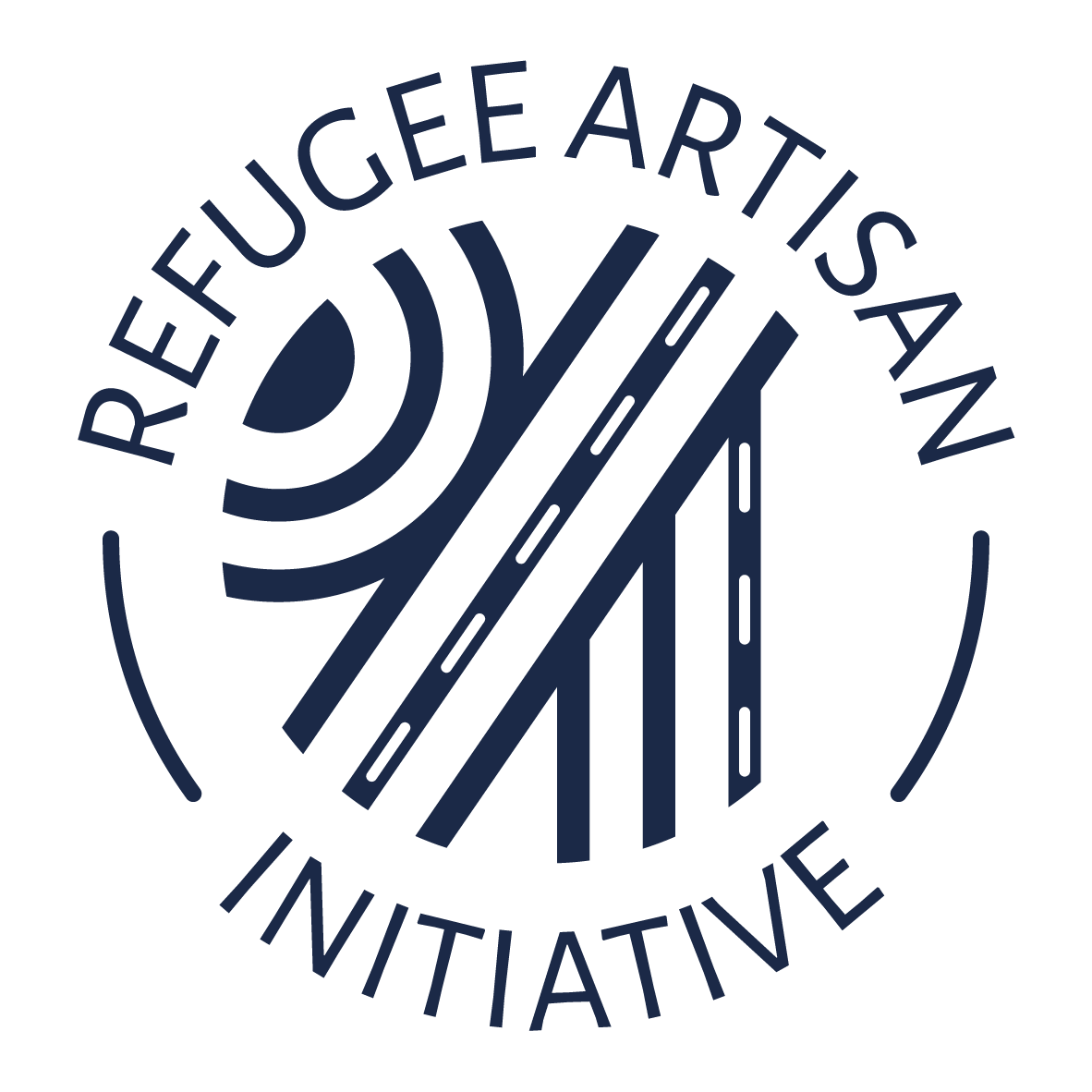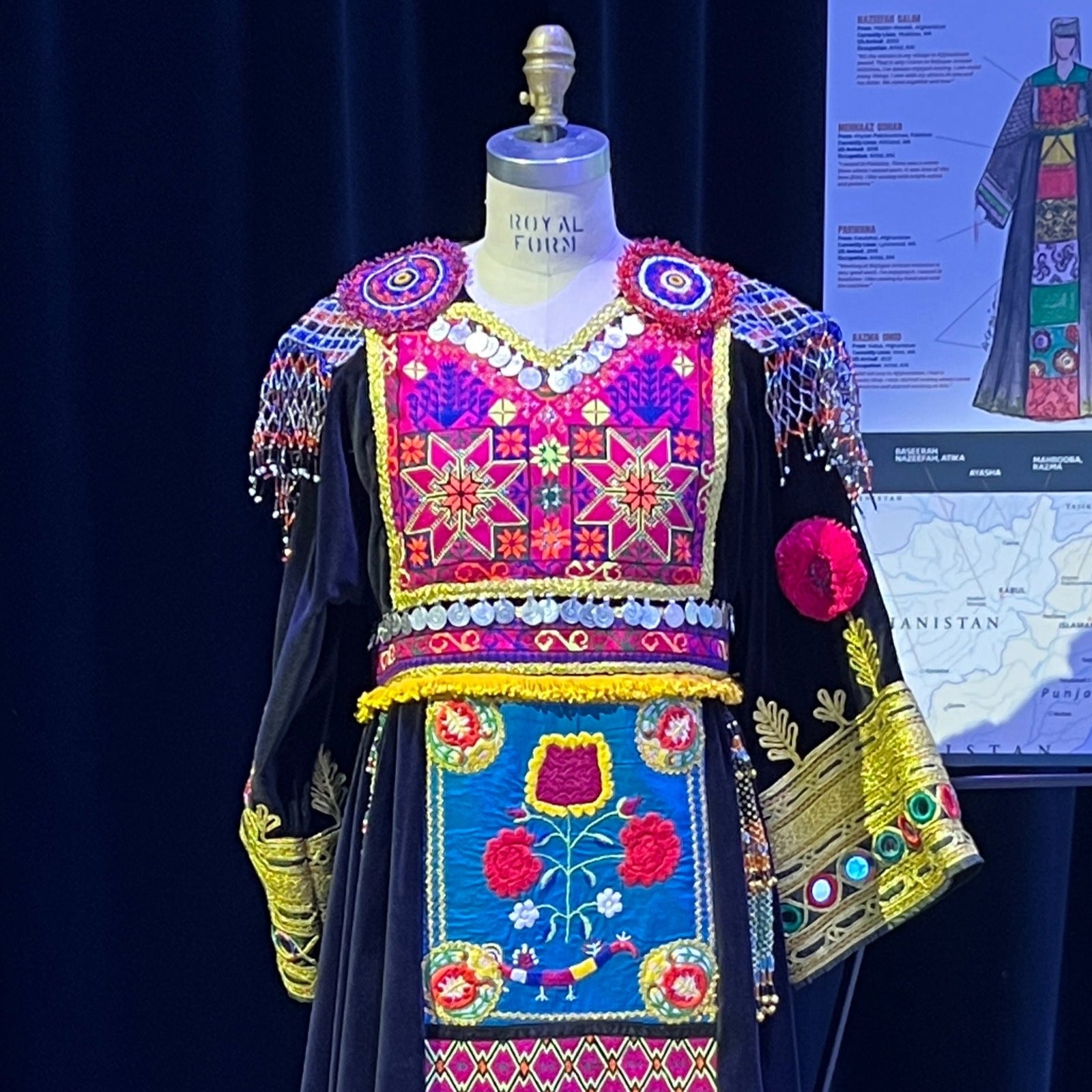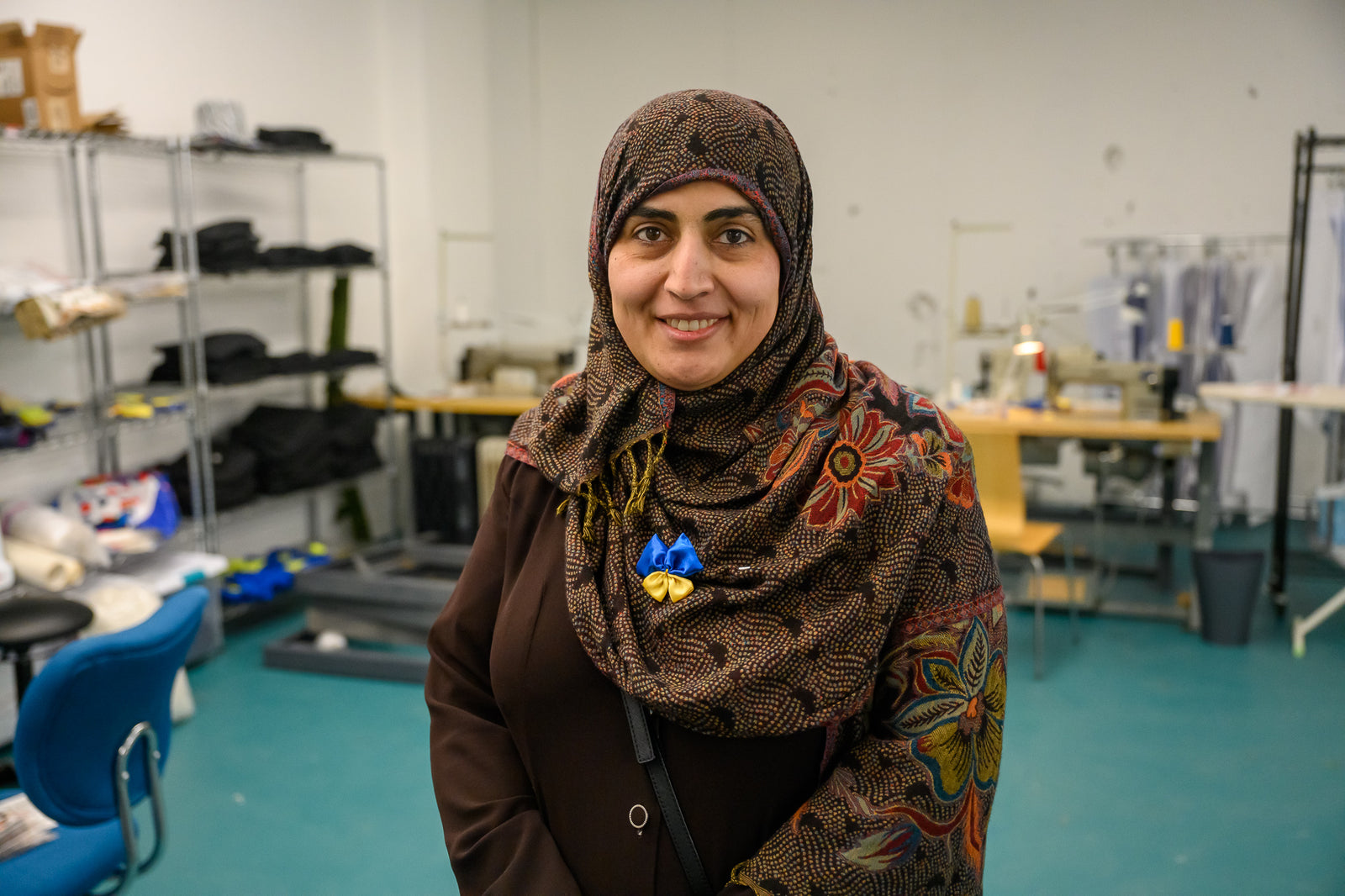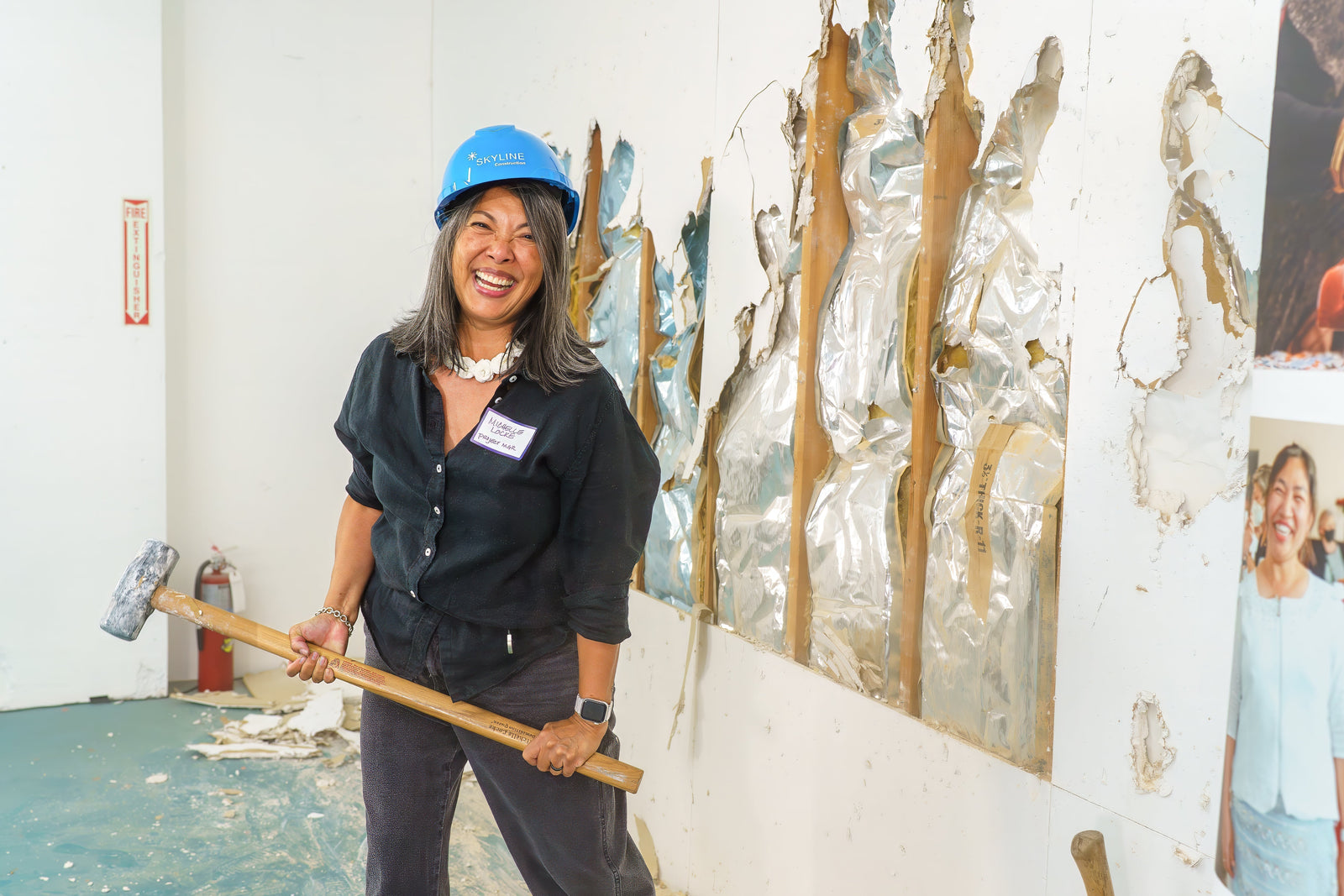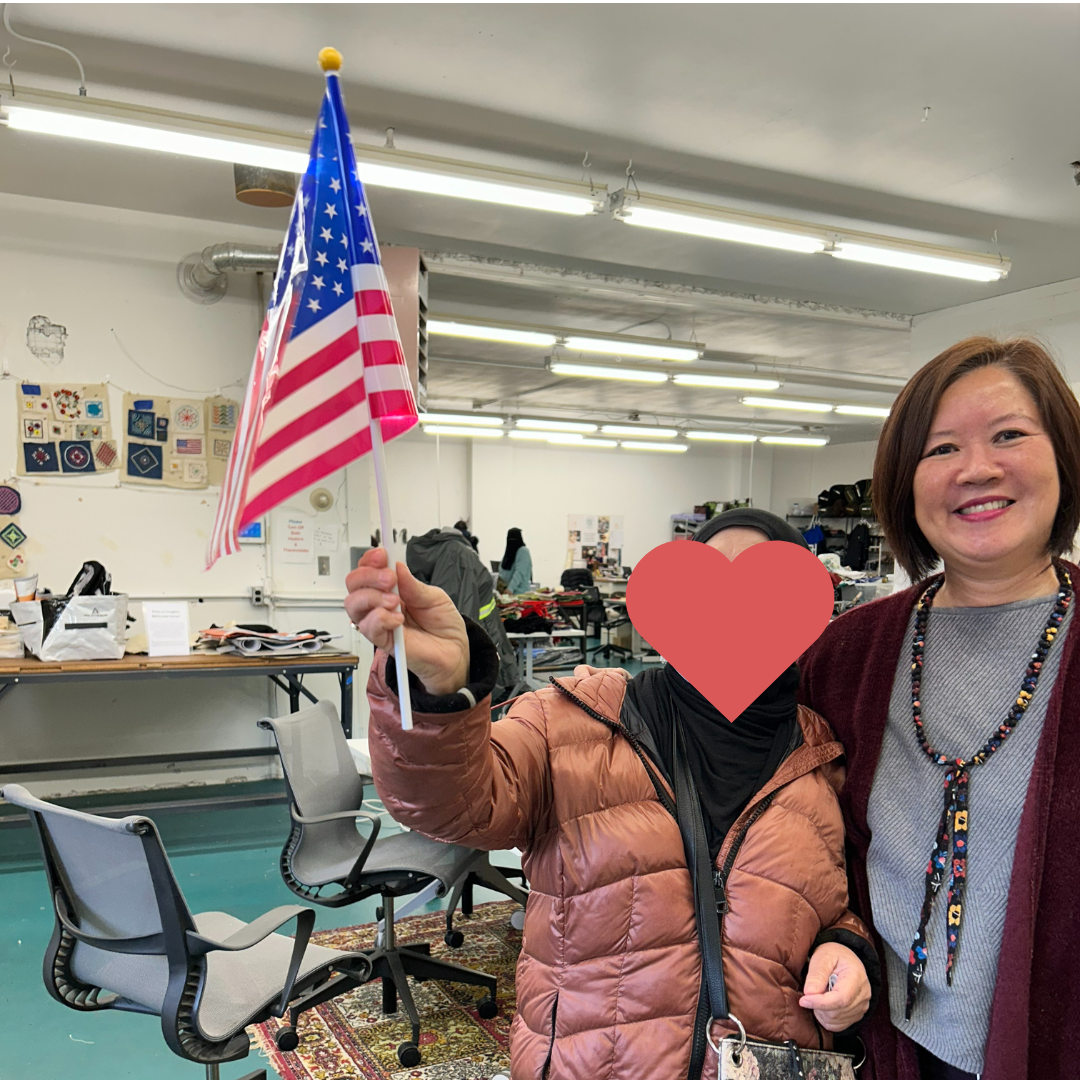April 17, 2022
Author: Ellie White
[This article originally appeared in Seattle Refined and is reprinted here with permission]
-----
Creating jobs, diverting waste, and supporting refugees: Seattle's Refugee Artisan Initiative (RAI) does it all. It’s what RAI founder and president Ming-Ming Tung-Edelman calls their triple-bottom-line.
With a desire to create opportunities for newly-arriving refugees, Tung-Edelman started RAI in 2017. RAI’s mission is to “partner with immigrant women to foster an inclusive, prosperous transition to the US through artisan skills training in zero waste and small batch manufacturing.”
RAI’s sewing training programs prepare immigrant and refugee women (with some previous sewing background) to earn income through at-home sewing projects, cutting and fulfilling orders for their small batch production, or making and selling original designs. Tung-Edelman hopes that the program will expand to include a made-to-order clothing and tailor service at their new location in Lake City.
By participating in these training programs, women have opportunities to improve their English skills, gain useful job skills, participate in the local community, and generate income.
But the program is about so much more than these practical skills.
Throughout the pandemic, RAI participants sewed over 80,000 masks for the local community. And currently, they are selling handmade yellow and blue butterfly pins as a fundraiser for the Ukrainian Red Cross. Tung-Edelman notes that, though all of the seamstresses at RAI may not speak English fluently, they actively participate in supporting the others through these projects.
RAI doesn’t simply create products using new materials. Tung-Edelman notes that each year, RAI diverts 5,000 pounds of textile waste by using recycled materials in their products. Most of their materials are donated and they are constantly asking themselves, “How can we take that stock and turn it into product?”
For one project, artisans used visible mending techniques on used Eileen Fisher cashmere sweaters. The upcycled sweaters sold out immediately.
You can support the work of RAI by shopping their handmade products. If you’re looking for gifts that are unique, sustainable, and ethical, check out RAI’s offerings. You’ll find items such as dish towels, tote bags, hats, and a variety of pet products. If you’re a medical professional, you can purchase your scrubs from RAI. They sell for a competitive price and are locally made.
Tung-Edelman highlights the resilience of the women who participate in RAI. She reminds us of the false notion that refugees want to come to the United States to take resources.
"They want to start their new lives and they want to succeed just as much as we do," she says. "It’s a privilege for me to get to know these people and I feel such an honor to get to know their stories and see them succeed in milestones."
With its triple-bottom-line, RAI is bettering our community. To get involved in welcoming refugees, supporting the local economy, or purchasing sustainable products, check out the Refugee Artisan Initiative today.
